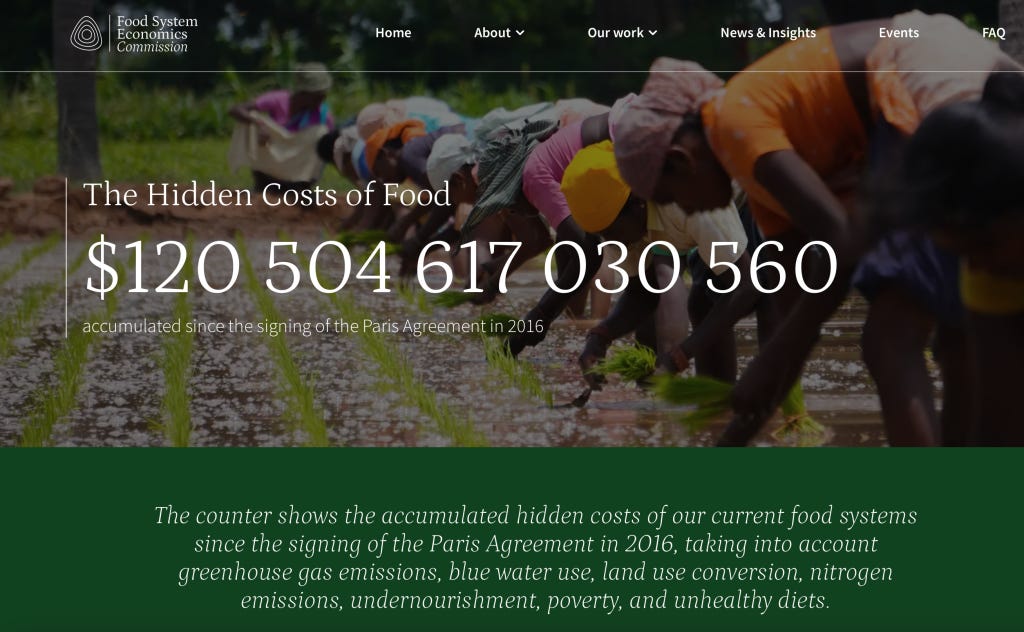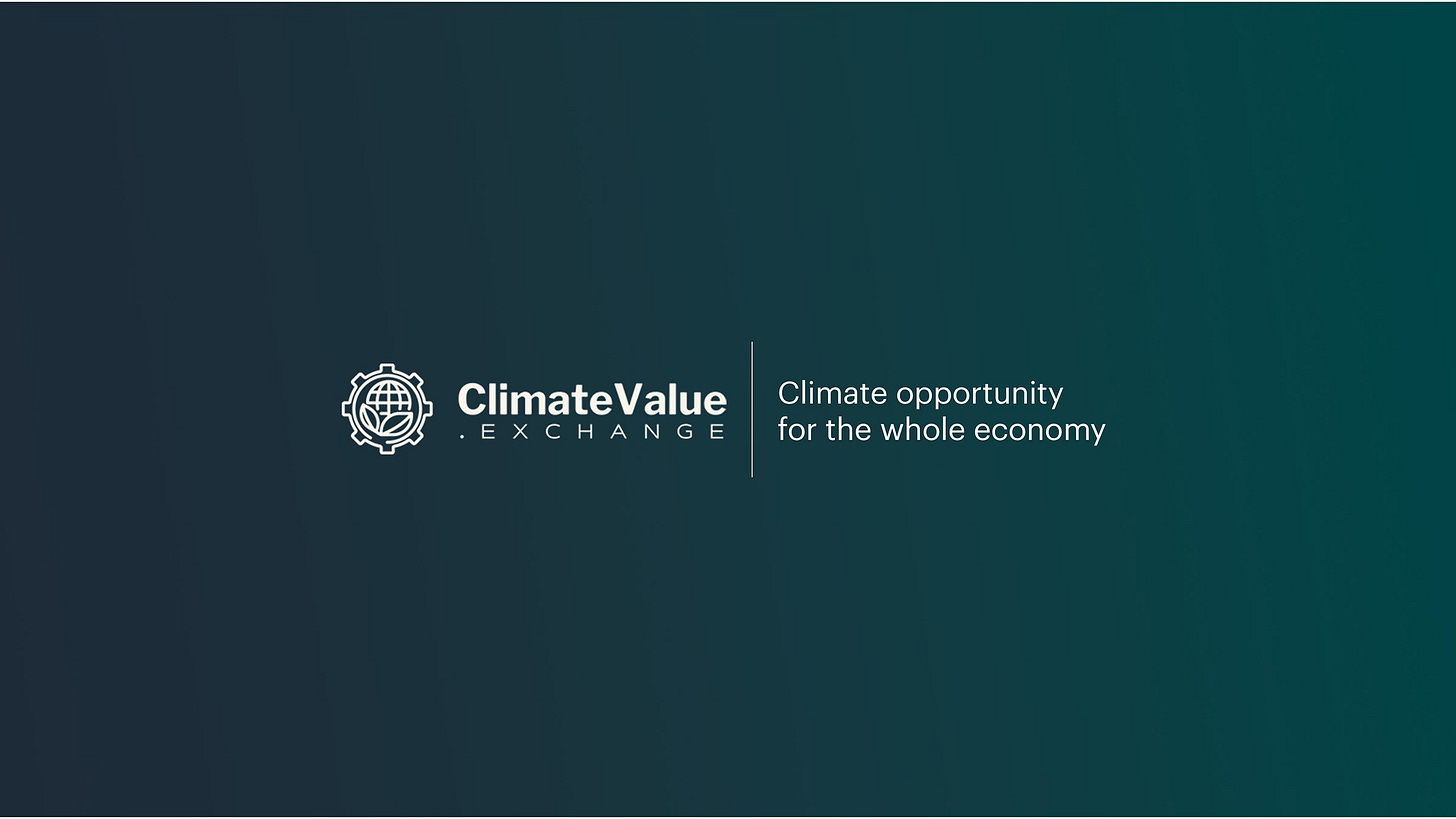How to mainstream climate action everywhere
What is non-market climate cooperation? It's how groups of countries can make climate value central to their dealings, with benefits across the whole economy.
In 1992, nearly 200 nations agreed to work together to "prevent dangerous anthropogenic interference with the climate system". We are now living with increasingly dangerous and costly impacts of human-caused climate change, in every region. The Paris Agreement sets high standards for action: limiting global heating to 1.5ºC (as determined by scientific review), while aligning all financial flows with climate-resilient development, and supporting successful adaptation for the most vulnerable and to avoid the destabilization of nation states, economies, and food supplies.
Article 6 of the Paris Agreement outlines opportunities for multilateral cooperation to enhance and facilitate national and overall global climate action:
Paragraph 2 of Article 6 (Article 6.2) outlines voluntary carbon markets, where emissions can be "traded", which can affect how nations account for their overall carbon footprint.
Article 6.4 outlines a UN-managed carbon market, which is envisaged to have the highest standards for verification and integrity, and to support sustainable development.
Article 6.8 outlines "non-market approaches" to international cooperation—modes of cooperation that do not involve emissions trading or the "international transfer of mitigation outcomes".
All three of these areas aim to advance "overall mitigation of global emissions" (OMGE). So, resources shared between countries should not merely transfer climate action benefits in a zero-sum way (one country reduces pollution that another expands); the result of cooperation should be an upgrading of ambition and acceleration of implementation for global decarbonization (OMGE). So, OMGE implies cooperative subnational climate action—supporting the mainstream economy’s ability to accelerate decarbonization, even if some sectors lag behind.

What all of this adds up to is: “non-market” climate cooperation is everything two or more countries do cooperatively, becoming aligned with climate resilient development.
Some might focus on sharing subsidies and supply chains for low-emissions energy systems;
some might focus on regulations, incentives, and trade policy to support expanded use of climate-smart food production practices;
some might get together around financial regulations and climate-sensitive debt relief;
central banks can work on monetary policy to support better banking, economically efficient realignment of incentives, and enhanced fiscal stability;
even the way ports and shipping are managed and funded can support upgraded OMGE.
Smart governments will work with partners in all of these areas, and more, to secure a strong position in the climate value economy. Non-market climate cooperation means the future is opening up for climate value as a business, financial, and macroeconomic core aim, with real benefits to everyday opportunity, prosperity, and well-being.
Imagine 2 or 3 countries, or 10 or, in the African Union-European Union context, 82 countries, working together to eliminate pollution, enrich farmland naturally, protect ecosystems and watersheds, expand access to clean water, reduce both communicable and non-communicable disease prevalence, and build Main Street economies that demand and reward the necessary upgrades to land use, energy systems, and industrial practices. Instead of consumers having to hunt for the one option that is good for both people and planet, they can choose the best from among a number of competitive options.
The Climate Value Exchange was established, in January 2024, to support the better, more detailed, more forward-thinking elaboration of non-market approaches to building an everyday economy that consistently delivers climate value, rather than wastefully exacerbating climate breakdown. Working with partners in the public, private, multilateral, philanthropic, and knowledge sectors, we will provide evidence, convening spaces, and design ideas to support expansion of climate value for economic, human development, and security benefits.
Food systems are a crucial example.
In January, the Food System Economics Commission released its global policy report. After four years of work, the Commission found:
Food systems currently generate $15 trillion per year in total costs, while a transition to health-building sustainable food systems would deliver $10 trillion per year in benefits.
The total value lost, through direct, indirect, and opportunity costs, since the Paris Agreement was signed in 2016, now exceeds $120.5 trillion. (For reference, that value wasted equates to 19.7 times the total 2023 US federal budget of $6.1 trillion.)
That is real-world economic value no one is able to access—not the most powerful, not those most in need.
That level of senseless waste also means nations must use remaining financial and economic resources inefficiently, to support baseline stability against an overwhelming wave of compounding cost and risk.
A pervasive global transformation of food systems is needed, to halt and reverse these losses. The good news is: the transformation is possible, economically viable, and would lead to significant benefits for farmers, rural economies, actors across value chains, and to consumers' ability to access health-building, sustainably produced food, routinely and affordably. Even today's dominant market players can benefit, if they make the right adjustments early enough, at scale, and with awareness of the value of investing in benefits to small-scale producers. But the stakes are rising quickly.
We have all read, and likely personally experienced, some of the all-time record heat and anomalous weather conditions of 2023. There is solid evidence that no human being has lived in such a hot global climate for at least 125,000 years. A 2023 report finds that snowpack in the northern hemisphere—where 80% of all human beings live—is steadily declining, with new evidence showing 2023-2024 snowpack at record lows. That means billions of people are likely to experience unprecedented water shortages and food scarcity or food price spikes, or both, in 2024.
The breakdown in natural background climate value is leading to a breakdown in the integrity and reliability of human systems. This is already costing lives and destabilizing nation states. Without food and water, no human settlement can exist in an orderly way. If the global capacity for for food production declines far enough fast enough, stability will not be possible.
Non-market climate cooperation is an opportunity to get on the right side of this unprecedented challenge. Sharing data, resources, technology, and more cost-effective modes of resilience finance, can allow both large-scale and small-scale actors, in both wealthy and in low- and middle-income countries (LMIC), to make the adjustments needed to shift to climate-resilient modes of production.
Non-market climate cooperation as outlined in Article 6.8 of the Paris Agreement will lead to mainstreaming of climate governance, standards, data, and enterprise, into everyday economic activities and trade relations. Beyond development finance and carbon offsetting, climate cooperation can now support human development, wellbeing, and sustainability, across whole economies.
In the coming months, the Climate Value Exchange will expand on our non-market brief, reporting on non-market approaches (NMAs) both operational and conceptual to support mainstreaming of climate value through:
Banking regulations;
Carbon pricing policy alignment;
Infrastructure and transport;
Resilience and adaptation;
For more information about these and other modes of non-market climate cooperation, visit the Climate Value Exchange.




